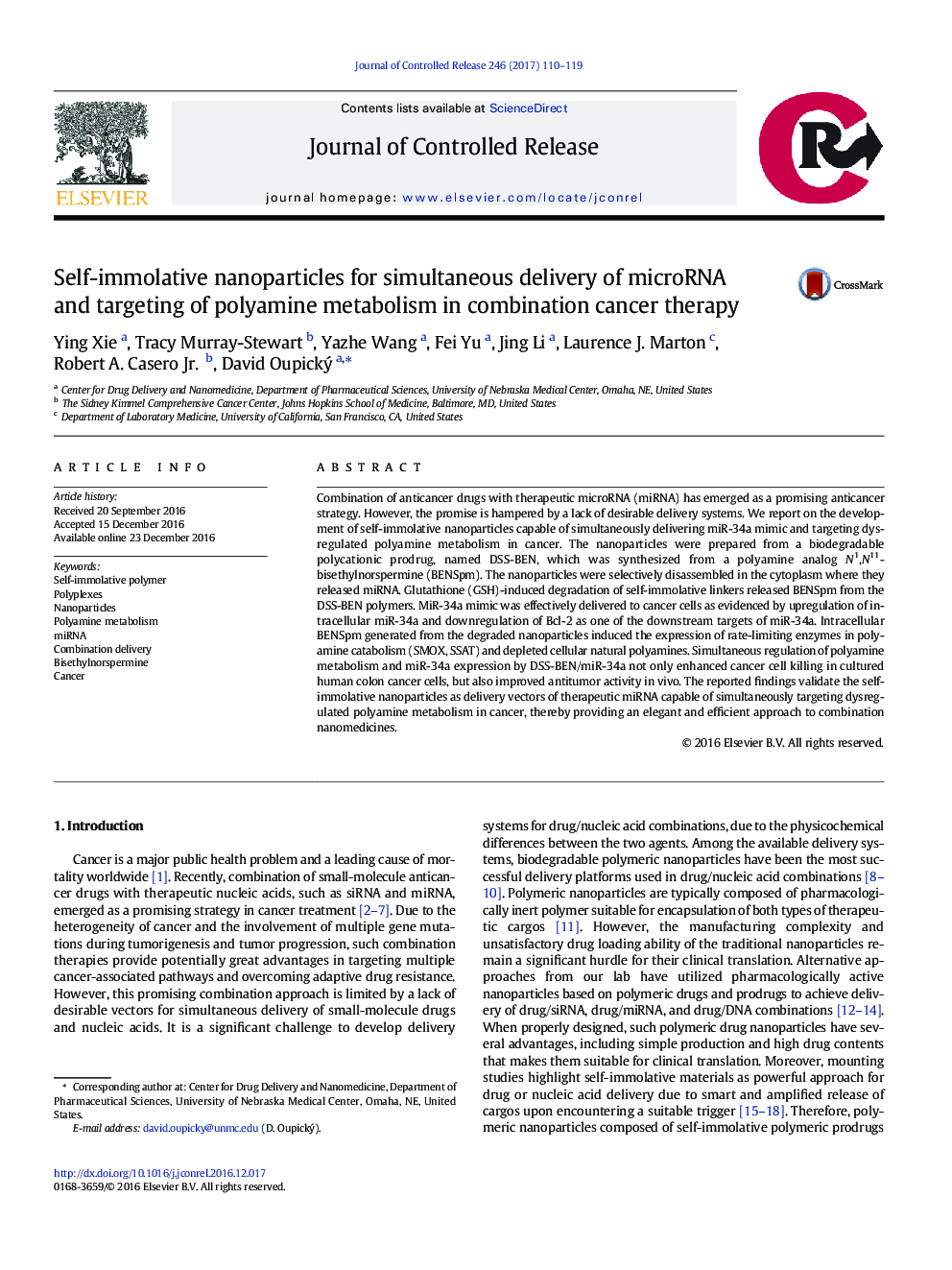| Article ID | Journal | Published Year | Pages | File Type |
|---|---|---|---|---|
| 5434019 | Journal of Controlled Release | 2017 | 10 Pages |
Combination of anticancer drugs with therapeutic microRNA (miRNA) has emerged as a promising anticancer strategy. However, the promise is hampered by a lack of desirable delivery systems. We report on the development of self-immolative nanoparticles capable of simultaneously delivering miR-34a mimic and targeting dysregulated polyamine metabolism in cancer. The nanoparticles were prepared from a biodegradable polycationic prodrug, named DSS-BEN, which was synthesized from a polyamine analog N1,N11-bisethylnorspermine (BENSpm). The nanoparticles were selectively disassembled in the cytoplasm where they released miRNA. Glutathione (GSH)-induced degradation of self-immolative linkers released BENSpm from the DSS-BEN polymers. MiR-34a mimic was effectively delivered to cancer cells as evidenced by upregulation of intracellular miR-34a and downregulation of Bcl-2 as one of the downstream targets of miR-34a. Intracellular BENSpm generated from the degraded nanoparticles induced the expression of rate-limiting enzymes in polyamine catabolism (SMOX, SSAT) and depleted cellular natural polyamines. Simultaneous regulation of polyamine metabolism and miR-34a expression by DSS-BEN/miR-34a not only enhanced cancer cell killing in cultured human colon cancer cells, but also improved antitumor activity in vivo. The reported findings validate the self-immolative nanoparticles as delivery vectors of therapeutic miRNA capable of simultaneously targeting dysregulated polyamine metabolism in cancer, thereby providing an elegant and efficient approach to combination nanomedicines.
Graphical abstractDownload high-res image (286KB)Download full-size image
